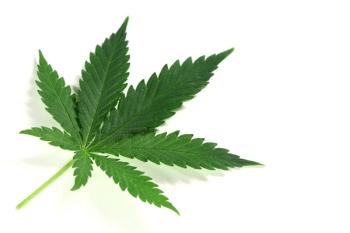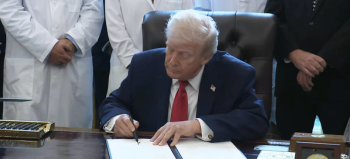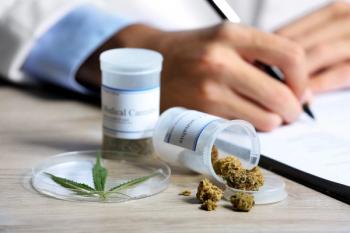
The Fight for Medical Cannabis and Patient Rights in Hawaii

Despite widespread legalization in the US, many legal cannabis operators can still be subjected to raids and government interference. In 2021, when we first met Jason Hanley, owner of CARE Waialua, he shared his passion for helping patients on his medical cannabis farm on Oahu, Hawaii and explained the rules and operation there. Recently, his farm was raided by the federal government reportedly for no stated reason, and he has yet to be charged with any crime or citation. Here, Hanley shares his story of what transpired, how it has impacted his farm and the patients he serves, and what he hopes to see change in the future.
For anyone that missed our
Jason Hanley: My name is Jason Hanley. I am a 20-year retired US Fish and Wildlife Service basis and business biologist, a 10th mountain Army veteran, and an eight-year cannabis advocate. CARE Waialua started in 2016 in an attempt to to provide a place to grow and get affordable medicine to the patients of Hawaii. We have more than 1000 patients on our farm that are all compliant with our site and listed on the Grow Site, which is on the Hawaii 329 card medical cannabis program.
In October 2023, CARE Waialua was raided by federal authorities. What is your side of the side of the story? Do you think your case is being fairly represented by other media outlets?
Hanley: On Tuesday, October 24, 2023, federal authorities, including Homeland Security investigations and the Federal Bureau of Investigations (FBI), raided our medical-compliant farm as well as my household. More than 70 agents were involved and the results were that they took everything from our farm, including cannabis and cannabis paraphernalia, computers and phones, and at my home they took all of my computers and cell phones. My side of the story is that we have been operating for six years with no non-compliance reports to the Department of Health (DOH) who runs the cannabis program in Hawaii, so we had no reason to fear either state or federal authority. Our doors were wide open, and we were very transparent. We have had very little representation by media at this point, but it just happened. We did get some great input from Last Prisoner Project, which will be covering our lawyer fees if I do get charged and we had a couple news media stories that happened quickly after through Hawaii News Now and KITV.
Can you explain how this has affected your business as well as the patients and caregivers that rely on your farm?
Hanley: The impact on our business has been devastating in a few ways. Of course, financially because they took everything we had, which we have been building for six years. This includes Rick Simpson Oil (RSO) capsules and other cannabis products which all were to provide our patients the exact medicine they needed. As far as the patients on our farm, it has been devastating. I think the most improper thing was done after the raid when the Department of Health sent out mass emails to our patients stating they should change their Grow Site because we are under investigation. Please remember no charges were brought against me and still haven't been.
What are the next steps for you to resume operations or ensure this does not happen again?
Hanley: Currently, we have resumed our operations and I'm very confused why we were raided in the first place. Secondly, if we are not in compliance what do we need to change so we hold steady and move forward in the model we have right now? I would like to add that this type of federal intervention is happening all over the United States—basically the feds show up and raid places that are in compliance and don't provide any charges. I can also add to this that there are strict rules within the Supreme Court that prevent federal intervention into state compliance programs. This has been spelled out in the Cole Memorandum (2), and other cases that are pertinent to this. We are astounded by these behaviors, as there has been no federal intervention on cannabis since the Ronald Reagan days in the Operation Green Harvest days. I would also like to add that we have had more than 20 politicians on our farm, including the current governor Josh Green, DOH, sheriff’s department, and more—they've all been to our site and we were never cited. There are many theories as to why this happened, but right now the most important thing is the dispensers are trying to pass a legalization bill and they are trying to do anything to get farms like mine out of their way. So, there is a lot of data that suggest the dispensaries came together with funding and brought in the federal government.
What challenges do you experience in Hawaii, particularly related to growing and offering support to medical cannabis patients?
Hanley: The challenges that we experience in Hawaii are that the medical cannabis program was legislatively passed in 2000 and the state has done very little to protect cannabis patients’ rights. Although this was a federal raid, there have been thousands of state raids on medical cannabis farms, small and large, that are never documented or recorded. Many would call this compliance, but they come in with no education and don't know what they're doing, so we all consider those raids. I might add the DOH, who is responsible for the medical cannabis program has also been missing. An action has been on our site and does nothing to support us whatsoever, and it's very antagonistic as I work through the legislator right now which I've been doing for three years to pass better bills. It is very obvious that Hawaii has a vice against cannabis as law-enforcement and attorney generals are very against cannabis, even as bad as going on TV and saying the cannabis is stronger now and it's a dangerous drug. In Hawaii’s 329 law there is language written out for the dispensaries and there's language written out for the medical patients. A good question is why weren't dispensaries raided if they're going after farms like ours? That answer is easy: they have multi-million dollar investors and strong lobbyist behind them.
What are you hoping to see change in the Hawaiian cannabis industry?
Hanley: The things we are hoping to see the change are the same as the overall cannabis industry. Currently, we have a medical bill that we have drafted in the legislators’ hands right now that would provide a strong medical-based program to protect our patients against federal intervention and state intervention. The State of Maine has built a legacy medical program for the world to follow and can be adapted to fit any state. This bill can be found on my Instagram, Care_Wailua, in the bio. Our biggest fear is that they are working on legalization bills, which failed in all states in our current dual use program. The bill was written by the attorney general of Hawaii. Yes, I repeat: the Attorney General of Hawaii, with no input from the local people, but dispensaries are at the table, so our fight is to prevent legalization from happening until a strong medical program is built. Once the strong medical program is built that supports the local people and there are cultivation license all over Hawaii, then we can move the legalization.
Is there anything else you’d like to share?
Hanley: My last comment to share is we continue to manifest good energy and move forward. We are providing compassionate medicine and education to thousands of people across the way to the medical 329 card program. We are supported by all our patients and not supported by the dispensary program. We are barely supported by legislation, which continues to go online and an interview saying it's a dangerous weed and it needs massive testing, and so on.
References
- Colli, M., Veterans Farming at CARE Waialua, Cannabis Patient Care, 2021, 2(4),
https://www.cannapatientcare.com/view/veterans-farming-at-care-waialua . https://en.wikipedia.org/wiki/Cole_Memorandum .
Newsletter
Unlock the latest breakthroughs in cannabis science—subscribe now to get expert insights, research, and industry updates delivered to your inbox.




